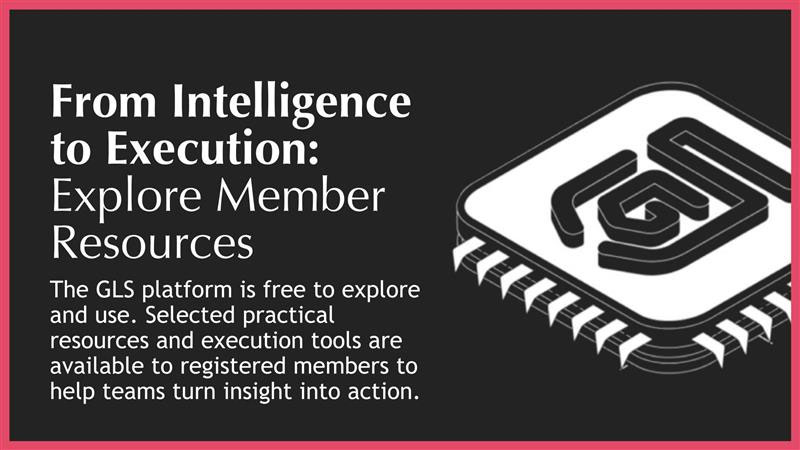The GLS Legal Operations Centre
Intelligence, resources and execution support
Transformation Tube Map
Knowledge Centre
Legal Dept.
Resources
Managed Legal Services
Members
Resources
Legal Ops
Community
Back
Data Analytics Line Line
What Is It
Historically, in-house legal operated on activity reporting (matter counts, hours) rather than decision-grade data. Today, the Data Analytics Line is the system that transforms legal operations into measurable, steerable performance. It captures, structures, and analyses the signals generated by legal work-intake patterns, cycle-times, deviation rates, risk outcomes, stakeholder experience, spend-to-value-and converts them into management-grade insights.
This line provides the data backbone for legal’s performance culture: standard data models, instrumentation of workflows, analytics platforms, dashboards, and governance that ensure trusted, comparable metrics. Properly engineered, it enables RPLV (Resources, Priorities, Leverage and Validation), targets value seepage recovery, prioritises special projects with the highest value density, and gives leaders a single source of truth for legal ROI and strategy.
Unquestionably, data analytics is a decisive corporate instrument-how well it is designed and operated will directly impact visibility, resource optimisation, stakeholder confidence, budgeting accuracy, and continuous improvement. It is not reporting theatre; it is a performance engine.
Business Importance
The Data Analytics Line is important to the Business for the following reasons:
◼️ Decision-Grade Visibility: replaces anecdote with facts-where time is spent, which risks matter, which outcomes move the needle.
◼️ Resource Optimisation: identifies bottlenecks and waste, guiding insource/outsourcing mix, automation targets, and skills deployment.
◼️ RPLV Discipline: enables risk–price–leverage–value framing with data tags on matters, negotiations, and settlements.
◼️ Stakeholder Confidence: transparent dashboards on service levels, responsiveness, and outcome quality build trust and predictability.
◼️ Budget Control: links spend to validated outcomes, preventing cost creep and substantiating investment cases.
◼️ Strategy & Prioritisation: exposes value density-which projects, counterparties, or contract types deliver the highest return.
◼️ Continuous Improvement: codifies learn–adjust–improve cycles through metric reviews, retrospectives, and action tracking.
◼️ Scalability: standardised data models and instrumentation enable multi‑jurisdiction comparability and consistent governance.
Business Value
An optimised Data Analytics Line delivers:
◼️ Cycle-Time Compression: instrumented workflows and SLA adherence cut time-to-close across matters, directly improving business agility.
◼️ Margin Protection & Value Recovery: deviation analytics and post‑award monitoring identify value seepage and enable targeted recovery actions.
◼️ Spend Efficiency: cost‑to‑outcome dashboards, panel performance analytics, and e‑billing controls lower total legal cost per validated outcome.
◼️ Better Negotiation Outcomes: data‑backed playbooks and RPLV tags improve concession discipline and settlement quality.
◼️ Forecasting Accuracy: volume, complexity, and outcome trends enable reliable budgeting and resourcing plans.
◼️ Risk Quality: early‑warning indicators reduce high‑severity incidents, strengthening governance posture.
◼️ Stakeholder Satisfaction: telemetry on responsiveness and clarity raises client satisfaction and adoption of legal processes.
◼️ Scalable Transparency: one source of truth for executives and the board-comparable metrics across teams, products, and regions.
Best Practice Features
The best practice features of an optimised Data Analytics Line include:
◼️ Data Model & Taxonomy: standard definitions for matter types, stages, risks, outcomes, effort, value, satisfaction; RPLV tagging baked in.
◼️ Instrumentation of Workflows: intake forms, CLMS, and matter tools capture mandatory fields (complexity, value, deadlines) with validation and audit trails.
◼️ Analytics Platform: centralised repository and dashboards for cycle-time, backlog, deviation rates, outcome value, spend, stakeholder experience.
◼️ Value Seepage Monitoring: pre/post‑award trackers, margin leakage flags, targeted recovery playbooks.
◼️ E‑Billing Integration: rate cards, accrual tracking, panel performance, spend‑to‑value linkage, and exception alerts.
◼️ Performance Metrics Library: tiered KPIs-output (volume, velocity), quality (defects, rework), outcome (value secured, risk avoided), experience (NPS/CES), economics (cost-per-outcome).
◼️ Stakeholder Strategy & Feedback: periodic surveys, QBRs, sentiment analysis, and closed‑loop remediation.
◼️ Legal Team Budgeting: data‑driven budgets tied to forecast demand, complexity, risk, and productivity targets.
◼️ Special Project Resourcing: value density analysis and business case thresholds for project approval and staffing.
◼️ Governance & Data Quality: ownership of metrics, correction workflows, data completeness, and change controls.
◼️ Security & Access Control: role-based permissions, anonymisation where required, and audit-ready logging.
◼️ Learning Loop: monthly/quarterly reviews, insights memos, improvement actions, and lead indicator tracking.
Productivity Consequences
A poorly optimised Data Analytics Line will give rise to:
◼️ Blind Decision-Making: leaders steer by anecdote; priorities drift; resources misallocated.
◼️ Cycle-Time Drag: uninstrumented processes hide bottlenecks, prolonging closures and eroding stakeholder trust.
◼️ Spend Leakage: no linkage between fees and outcomes; panel underperformance persists unnoticed.
◼️ Margin Dilution: untracked deviations and post‑award slippage cause quiet value seepage.
◼️ Forecasting Errors: budgets miss because demand/complexity signals are not captured or analysed.
◼️ Compliance & Audit Pain: missing audit trails and data quality issues weaken assurance and board reporting.
◼️ Tech Shelfware: tools underperform without metrics and adoption telemetry; no ROI narrative.
◼️ No Improvement Loop: absence of reviews and actions means known issues repeat, compounding over time.
Tech Implications
Data Analytics is tech-anchored, but only effective with disciplined offline processes:
◼️ Analytics Platforms: dashboards for cycle-time, backlog, outcome value, spend, satisfaction; drill‑downs to matter level.
◼️ CLMS & Workflow Data: structured fields and status telemetry enable comparability and automation.
◼️ E‑Billing Systems: rate control, accruals visibility, performance analytics, exception management.
◼️ Feedback Tools: stakeholder NPS/CES capture, sentiment analysis, and action tracking.
◼️ Data Governance: ETL, validation, permissions, retention, and audit logs for reliable reporting.
◼️Golden Rule: If intake, workflows, and approvals aren’t disciplined offline, analytics will surface dysfunction faster-it will not fix it for you.
What Next?
Feel free to explore each of the critical resource enablers that are comprised of an optimally performing Data Analytics function by clicking on the interactive map at the top of the page.
Visit each Station for in-depth analysis of what it takes to make this in-house function really perform. Or you can go back to the overall GLS Legal Transformation Tube Map.
In most cases, the GLS Legal Operations Centre contains everything you need to effectively optimise your Data Analytics function yourself – or feel free to reach out to us – and we can do it for/with you.
Feel free to contact GLS to book a consult to discuss your Data Analytics function optimisation needs right here.

The GLS Legal Operations Centre
Register to access your complimentary Day 1 Resource Stack packed with legal team performance resources.

GLS Ultimate Guide To Legal Operations
Download this and read it thoroughly and regularly. It is a wonderful transformation companion.

Book A No-Obligation Consultation
If you would like discuss your legal transformation needs, please book a 30 minute free consultation with us.

GLS Legal Transformation Boot Camp
Our hugely successful, 10-week long, email-based boot camp on how to effectively transform your legal team.




